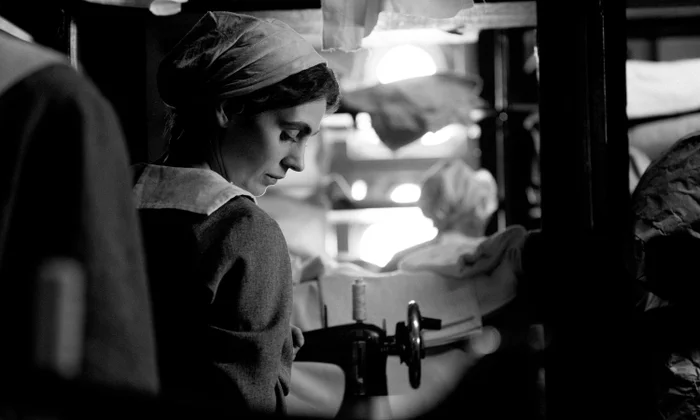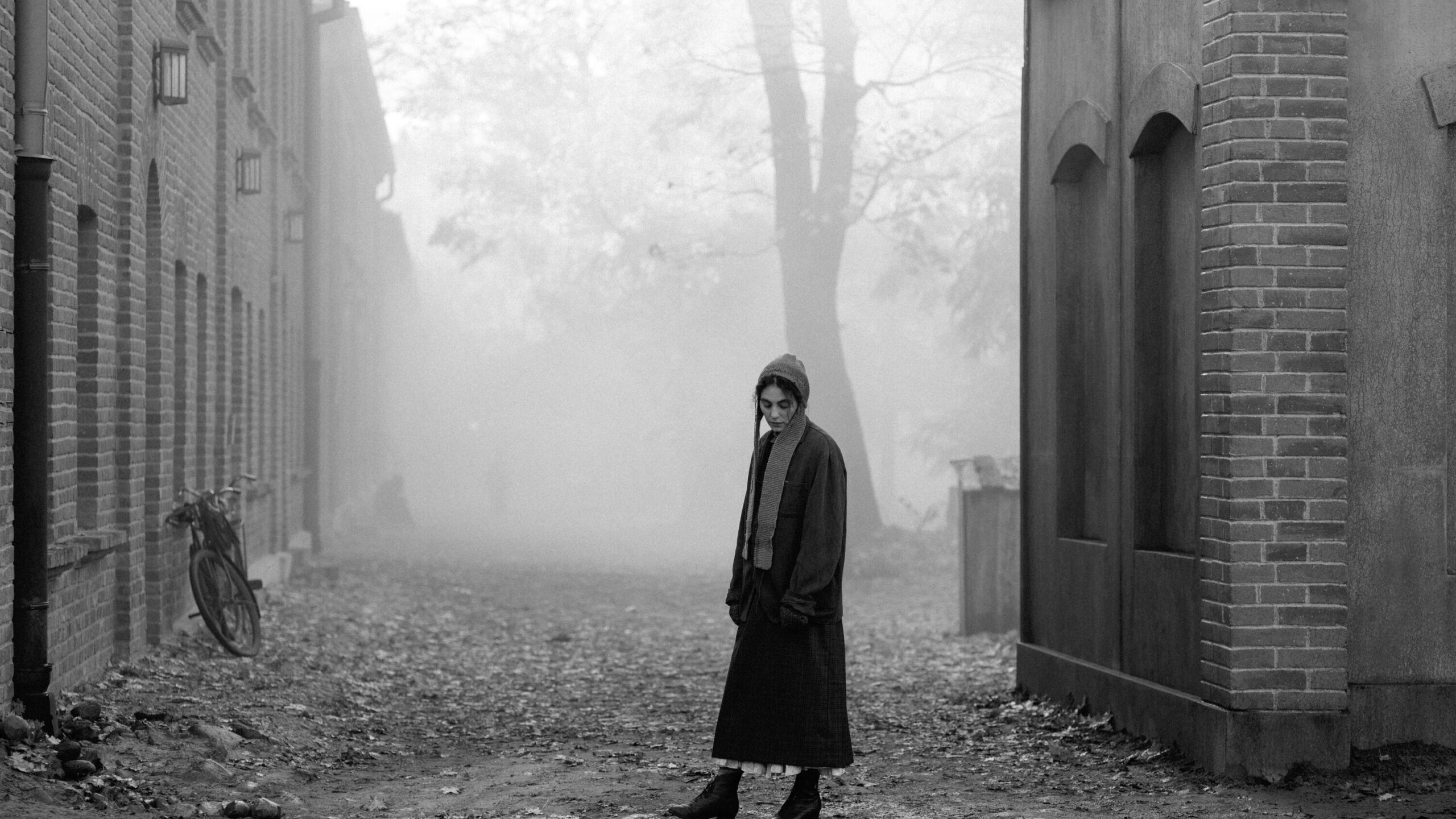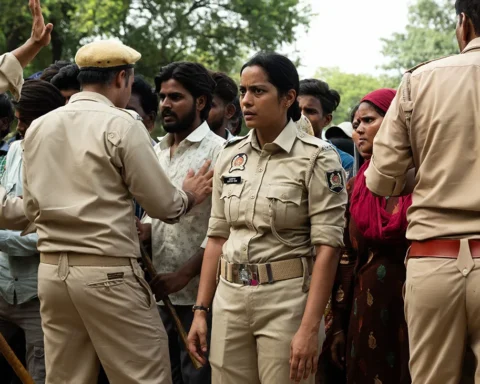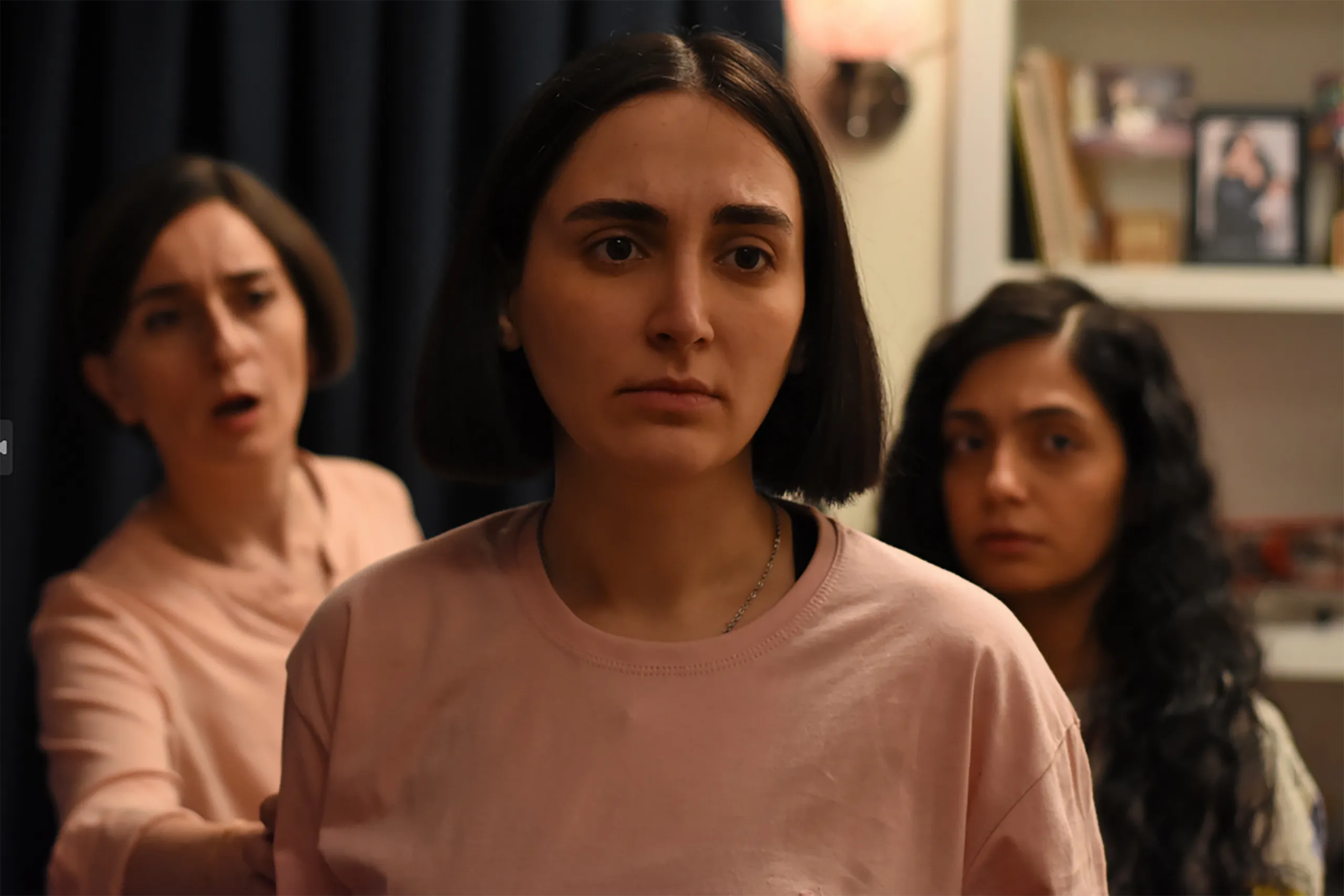Denmark may have had statistically low murder rates, especially when compared to most countries around the world. But the Nordic country remains notorious for some of its high-profile true-crime murder cases from the 1950s Copenhagen hypnosis murders, which was made into a movie titled Murderous Trance a.k.a. The Guardian Angel starring Pilou Asbæk in 2018 to the murder of Kim Wall in 2017, which became a 2022 Netflix documentary film Into the Deep: The Submarine Murder Case.
Then, there’s the Danish serial killer Dagmar Overbye, who murdered between 9 and 25 children from 1913 to 1920 before she was eventually arrested and initially sentenced to death before being commuted to life imprisonment. This unspeakable true story becomes a source of inspiration for director Magnum von Horn in The Girl with the Needle.
But instead of diving straight to the grisly subject matter told from Dagmar’s point of view, von Horn, who also co-wrote the screenplay with Line Langebek took creative liberties by introducing Karoline (Vic Carmen Sonne), a fictional and titular character where the movie focuses primarily on her. It may sound like a risky creative decision but von Horn justifies his move by delving into Karoline’s character arc that allows us to root for her trials and tribulations.
Right from the start, von Horn engulfs his movie with a foreboding sense of dread and pessimism through the evocative use of Frederikke Hoffmeier’s unsettling string-laden score and Micha? Dymek’s atmospheric cinematography. Von Horn also favors shooting The Girl with the Needle in stark black-and-white rather than color, giving the movie a distinctly moody visual aesthetic that perfectly mirrors Karoline’s hardship.
The first 30 minutes establishes Karoline, who finds herself facing eviction after she fails to pay her rent for weeks. She barely gets by even when she has a job working as a seamstress at a local factory. She has a husband named Peter (Besir Zeciri), who remains missing in action from war and without the official declaration that he’s dead, she is not entitled to monetary compensation as a widow.

Fortunately, her luck somewhat changes when her boss Jørgen (Joachim Fjelstrup) falls for her and the two begin a romantic affair. After Karoline is subsequently pregnant with Jørgen’s child and he promises to marry her, it looks as if she’s no longer having to deal with poverty anymore. Or so she thinks until Jørgen’s abominated baroness mother (Benedikte Hansen, in a memorable small role) forbids her son to wed Karoline.
It’s all back to square one for poor Karoline, who not only loses her job but also shoulders the responsibility of carrying a baby in her belly on her own. This leads to one of the movie’s most unflinching, matter-of-fact moments of self-abortion in a public bathhouse revolving around the use of a long needle. It was one of those hard-to-watch scenes that makes you wince away but at the same time feel sympathy for the depressing Karoline, who is making a tough decision resorting to such an act. This is where Dagmar (Trine Dyrholm) is finally introduced, who happens to be there at the time of Karoline attempting to abort her own child.
After Dagmar is kind enough to help Karoline, she tells her she’s running a service handling unwanted infants that will find them the right home for a fee. Von Horn doesn’t shy away from the pragmatic situation during the post-World War I Denmark, where the country is suffering an economic slump that resulted in mass unemployment as seen from Karoline’s plight trying to earn a decent living.
The movie’s deliberate pace allows von Horn to explore all the personal struggles that Karoline is forced to go through in crude detail and even with the glimmers of hope – her relationship with Jørgen and getting to know Dagmar, where they form a bond after the latter takes her in to live in her candy shop and Karoline becomes a wet nurse – nothing is seemed certain.
The underlying horror of what Dagmar will do to the babies given away by the parents is unfolded in a subtle, slow-burn approach without succumbing to something lurid or sensational. Instead, von Horn’s measured direction creeps up on you with the disturbing nature of Dagmar’s character, whose seemingly kind-hearted person masks a hidden manifestation of pure, remorseless evil. This is especially true once Karoline learns the dark truth about her and her so-called “services”. Of course, none of this would have worked if not for Trine Dyrholm’s manipulative supporting turn as Dagmar while the movie benefits from Vic Carmen Sonne’s sympathetic lead performance as Karoline.
Beyond the explorations of Karoline’s hard-hitting journey and Dagmar’s heinous motivation behind her services, von Horn manages to slip in an effective subplot revolving around Karoline’s long-presumed dead husband, Peter, who somehow returns home one day except that he’s no longer the same person. The war has unfortunately scarred him both emotionally and physically as the latter is evident with his hideously deformed face that requires him to put on a mask. At one point, von Horn incorporates thematic elements of discrimination and societal prejudice against physical deformity that remind me of Freaks and of course, The Elephant Man.
Although The Girl with the Needle meanders around every now and then during the second half, such a shortcoming remains forgivable, but that doesn’t deter me from hailing Magnum von Horn’s latest work as one of the best movies of 2024.






